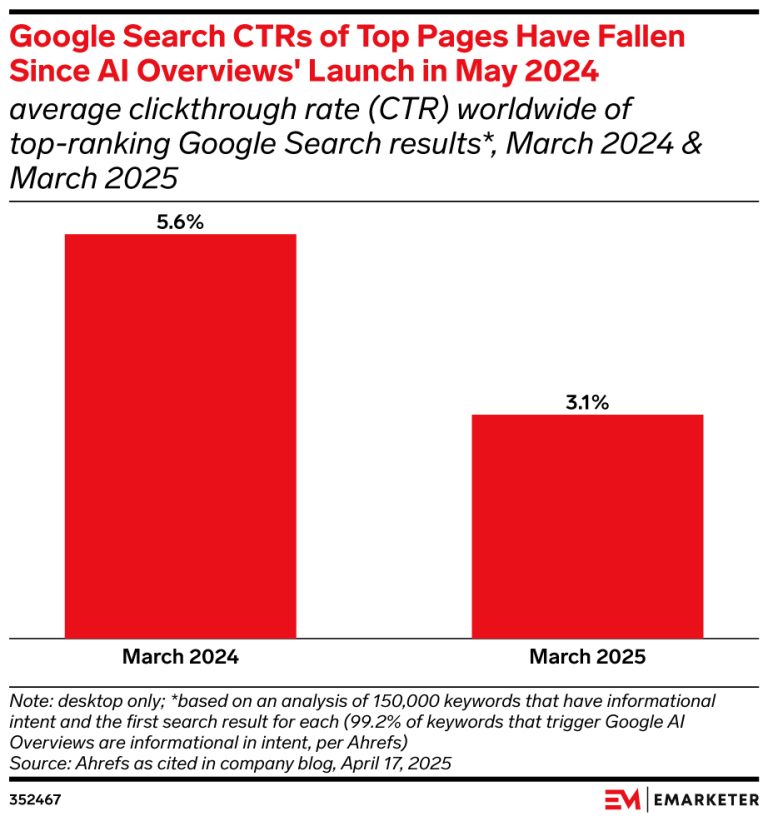We’re on the verge of a full-blown artificial intelligence takeover. Maybe that’s too dramatic, but people are using AI more in their everyday lives. Need a therapist? AI can help comfort you by affirming that you can blame everything on your parents. Don’t know if that month old greek yogurt you ate was a good idea? The answer is probably no, but AI will help you assume that you made the right decision. In the e-commerce world the day has come where consumers can ask and get answers to, “What do I wear to my cousin’s wedding to impress my judgy family?” It was inevitable that AI would impact important purchasing decisions.
We are in the early stages of a larger AI and e-commerce convergence. Just recently Open AI announced its entry into the game by partnering with shopping transaction company Shopfiy. This comes as AI itself has become widely adopted on the consumer level. It’s not something people are trying out of curiosity, but starting to incorporate into their daily lives so much so that one in five people rely on AI everyday. Things are moving quickly and AI is assimilating itself in all walks of e-commerce life. Are retailers ready for this surge of AI powered shopping?
Consumer adoption requires retailer adaptation
The early stages of AI consisted of gimmicky tools and models with subpar results, that kept them off the consumer radar. That has drastically changed, with more AI solutions arising for everything from therapy to cooking. It’s clear consumers are already incorporating AI shopping into their everyday lives with 53% of US consumers planning to shop with generative AI this year. As consumer adoption accelerates, AI-driven shopper interactions are fundamentally reshaping the retail journey. Here’s a look at how AI is already being used in the e-commerce space:
- Recommendations: Product offers personalized to behavior & intent
- Search & Discovery: Algorithm interpreted results from user queries
- Personalized Content: Dynamic content and experiences in sites, emails, and apps
- Shopping Assistants & Apps: Gen-AI chat driven price comparison & recommendations
If that list doesn’t signal an impending takeover of shopping activity by AI, consider AI’s growing impact on search results. The industry has seen a steep drop in consumer traffic to content sites that promote retail offers. Where AI overviews are presented in Google search results, click-through-rates to content sites have fallen as much as 45%.

Yikes…
What we’re doing in the AI shopping space
Connexity is actively integrating with several emerging AI technologies to provide our retail partners with unique incremental exposure in the new era of AI powered shopping. We’re adding AI shopping apps, AI powered contextual ad services and gen-AI chat agents to our retail shopping network. In addition, we partner with other sources that are already adopting AI (like Link-in-bio sites and retail gifting sites) to extend exposure for retailer partners by recommending offers to shoppers. The work we’re doing provides retailers a shoo-in, where opportunity is quickly expanding. Here are some key use cases illustrating how our integrations enable incremental exposure in the new AI landscape:
- AI Search Tools – We’re integrating with general purpose AI search engines and tools where we can provide retailer product placements within search results and generative AI content. When a shopper asks an AI search tool “What are the best running shoes for women?” the AI engine will provide recommended products that link to product offers from our retailer partners.
- AI Shopping Apps – We’re working to integrate with a plethora of dedicated AI powered apps related to dedicated shopping assistants, price comparisons, deals and rewards, gifting, product search, and more. When a shopper asks its AI shopping assistant app “What suit should I wear to a beach wedding?” it will recommend products to consumers tailored to specific user inputs, where the recommendations are linked to our retailer partner’s product offers.
The usage of AI tools that bypass traditional search results and other forms of advertising makes exposure in AI necessary for retailers. It’s creating new ways to shop online and changing the journey from query to purchase, even driving a consumer quickly through the conversion process.
Seizing your share of the future
AI is ushering in a rapid e-commerce evolution and traditional digital advertising is losing its grip. Traditional channels alone are not enough. Retailers need to navigate a shift in strategy to succeed.
The AI shopping landscape is a bit of a “wild west” at the moment. From major, general-purpose AI agents like ChatGPT, Gemini, and Copilot, to niche AI shopping assistants, it’s difficult for a retailer to know where to focus their efforts and which channels will deliver the most opportunity.
The first step is having skin in the game. As AI tech brings about new shopping interactions, your products need to be available and in the mix of consideration. Managing relationships with every new AI player is an impossible task for a single retailer. This is where a strategic partner comes in. A partner that is actively focused on integrating with emerging AI sources and can syndicate your product offers that enables true incremental exposure.
The digital road ahead
It’s clear that we’re standing at a new frontier where e-commerce and AI worlds are no longer separate. The market is being reshaped by a rapid abundance of AI-powered tools that are changing how consumers shop. To keep pace, retailers must be proactive and adapt their strategies to this new digital reality.
Much like the introduction to the internet in the mid-to-late 90s, this is another digital transformation in history that will change our industry forever. It’s hard to imagine what will happen, especially in the constantly changing landscape of e-commerce. Here’s a solution; let’s ask AI:
“Just as the internet irrevocably reshaped commerce in the early 2000s, we stand at another pivotal moment with AI. This isn’t merely an upgrade; it’s a fundamental re-architecture of how we buy and sell. AI will profoundly and permanently redefine every facet of e-commerce, from hyper-personalized product discovery and seamless conversational shopping to intelligently automated supply chains and predictive inventory management. It will drive unprecedented personalization, efficiency, and growth, fundamentally changing the online retail experience forever. The future of commerce starts now.”
-Courtesy of Google Gemini
Well, that seems aggressive, and even frightening, but like most AI results, an eerily accurate response of what’s to come from our AI overlords. Retailers should embrace what is ahead and be ready to adapt and evolve with AI. Retailers who don’t explore AI-powered solutions risk falling behind as consumer expectations and competitor capabilities evolve rapidly.
Connexity is an ideal partner to help retailers leverage AI, as we have a 25+ year track record of providing innovative e-commerce solutions. As the industry enters this next digital era, we’re here to help navigate the complex AI landscape for retailers.



